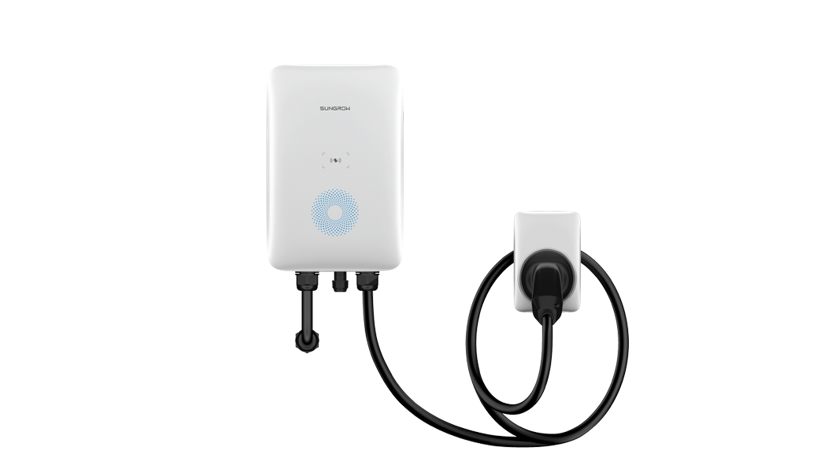
The world is undergoing a significant shift towards electric vehicles (EVs), driven by the increasing awareness of environmental sustainability, advancements in EV technology, supportive government policies and incentives, economic factors such as falling battery prices, and changing consumer attitudes towards electric mobility. With the increasing number of EVs on the road, the demand for reliable and efficient residential EV charging stations is also increasing. Homeowners are seeking solutions that can power their vehicles in a cost-effective yet effective manner.
The Challenges of Residential Charging Stations
While residential EV charging stations are getting common, they come with their issues. Most residential EV charging station manufacturers will push you in one or more of the following issues:
Complexity in Operation
Some residential charging stations come with complex interfaces and require technical know-how to operate and manage. So a layman may find them difficult to use at times.
Limited Sustainability Options
Traditional residential EV charging stations often rely solely on grid power, missing opportunities to integrate with renewable energy sources like solar power. This way, you may limit the environmental benefits of using an electric vehicle.
Installation Challenges
Depending on the design and requirements, some charging stations may be difficult to install and require professional assistance, adding to the overall cost and inconvenience.
Security Concerns
Without proper access control measures, residential charging stations can be vulnerable to unauthorized use, leading to potential energy theft or other security risks.
The Prospects of Residential Charging Stations
But despite these concerns, there are massive development prospects that make these residential EV charging stations a feasible thing. Globally, the EV charging station market reached $16.6 billion in 2021 and is likely to touch a whopping $226.3 billion by 2031, reported by Allied Market Research. And a big chunk of this industry belongs to residential EV charging stations.

Here are some development prospects and the direction in which these stations are going:
User-Friendly Interfaces
Now manufacturers are focusing on more user-friendly residential EV charging stations. They are doing this by including more intuitive controls, easy-to-read displays, and smart features that allow users to monitor and manage their charging remotely through mobile apps.
Integration with Renewable Energy
There is a growing trend toward integrating residential EV charging stations with renewable energy sources like solar panels. Solar EV charging stations are already there, and they will only get more popular with the passage of time.
Simplified Installation
Future charging stations will focus on simplifying the installation process, offering plug-and-play solutions that homeowners can set up themselves without professional help.
Improved Security Measures
In the future, manufacturers will prioritize robust security features such as RFID access control and secure authentication methods that will avert any security issue being faced today.
AC011E-01 L1 Recommendation
Sungrow is a leading provider of solar power inverter systems and energy storage solutions. We offer many sustainable energy solutions, including our residential EV charging station, AC011E-01 L1, which is transforming the way people charge their electric cars.

Here is why this 7/11KW EV charger will be the best residential EV charging station for your needs.
Reliability and Versatility
The AC011E-01 L1 is compatible with Sungrow's 1/3-phase solution, ensuring a versatile fit for various home setups. It also features integrated 6mA DC fault current detection, which enhances its reliability.
User-Friendliness
With a pre-mounted 7m Type 2 charging cable and a space-saving design for wall-mounting, the AC011E-01 L1 is designed by keeping users' needs in mind. It also offers optional pole-mounting for added flexibility.
Smart and Easy Management
The AC011E-01 L1 comes with control and visualization via iSolarCloud, and RFID access control with two cards included. This way, you can manage your charging station easily.
Sustainability
Sungrow's AC011E-01 L1 goes beyond charging. It maximizes the usage of solar energy when paired with Sungrow's 1/3-phase solution, offering different charging modes to fit all needs.
Sungrow's AC011E-01 L1 is a residential EV charger that distinguishes itself in the market with its unique blend of reliability, versatility, user-friendliness, smart management, and sustainability. It is a comprehensive solution that enhances the EV ownership experience. Its compatibility with Sungrow's 1/3-phase solution ensures versatility, while its user-friendly design and smart management features offer a seamless user experience. Furthermore, it has different charging modes to fit all needs. Together with the Sungrow 1/3-phase solution, it can maximize solar energy usage, committing to sustainability in response to the global shift to renewable energy.
Wrapping Up
Sungrow is the world's most bankable inverter brand, with over 340 GW installed globally. Founded in 1997, Sungrow has a robust 26-year track record, powering over 150 countries with its innovative solutions. With the largest dedicated R&D team in the industry, an in-house testing centre approved by SGS, CSA, and TÜV Rheinland, and the world's largest inverter factory, Sungrow is at the forefront of clean power conversion technology.